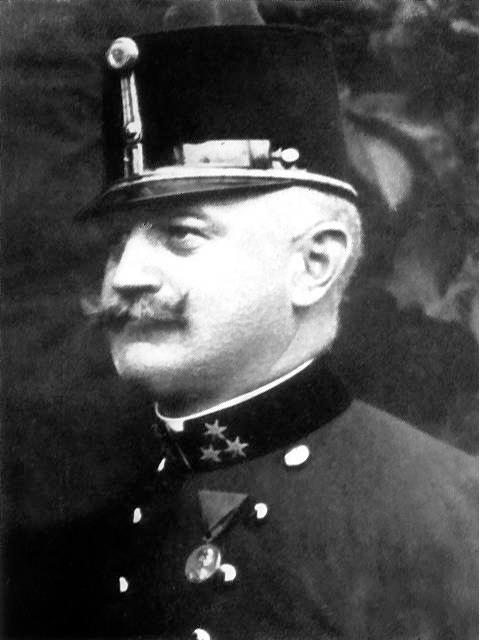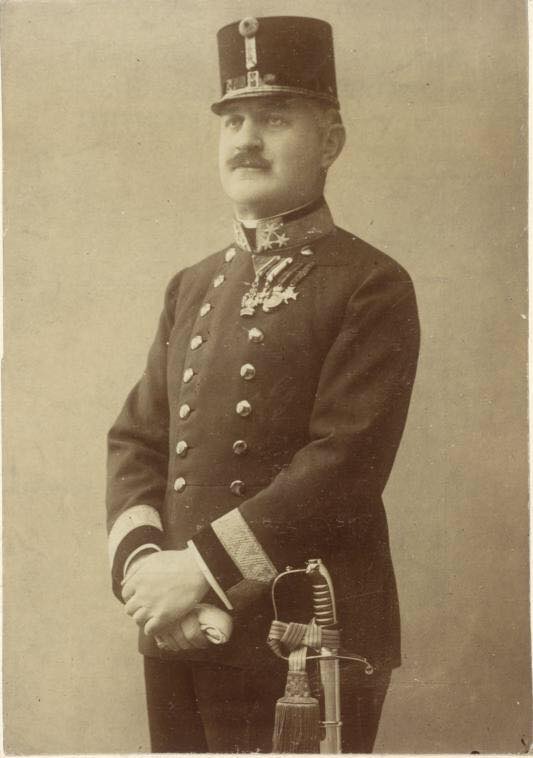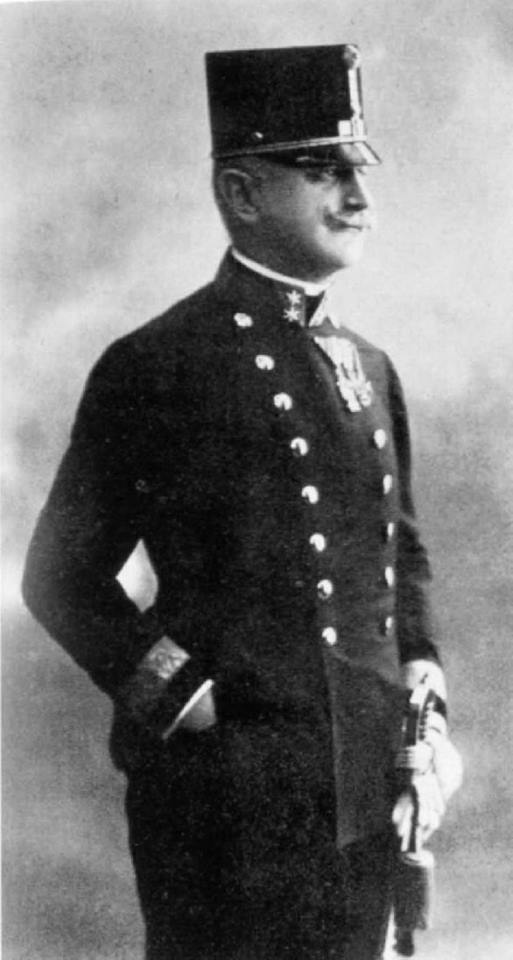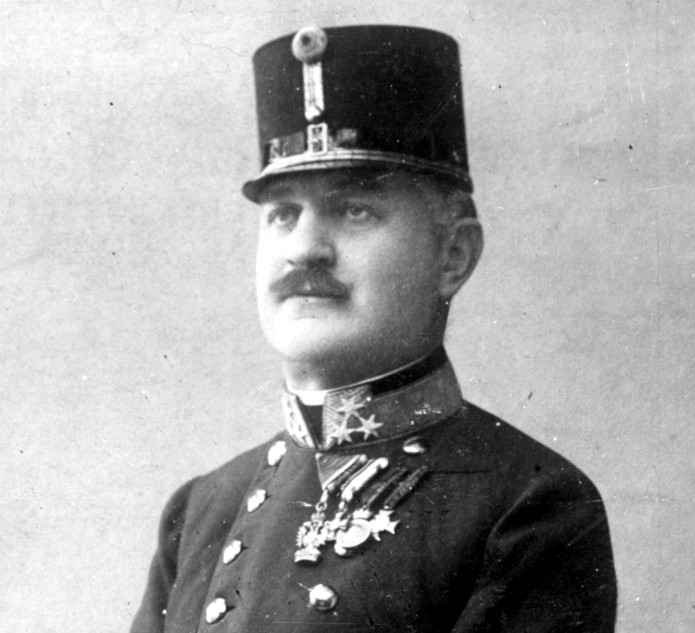Change language:
The story of the spy who destroyed the Austro-Hungarian Empire
Before and during World War I, several countries hired excellent spies to get more and more military information from their enemies to make the attack and destruction the most efficient. These spies, like Mata Hari, wrote themselves into the history of the 20th century with their outrageous, frightening and shocking career. Colonel Redl is considered to be the most famous spies of Europe before the war whose actions and military career eventually lead to the fall of the Austro-Hungarian Empire. His story is still a matter of discussion and mystery nowadays.
Alfred Redl (Colonel Redl) was born into a poor family on March 24, 1864, in Lemberg (Ukraine–Lviv; used to be an Austrian province under the name of Galicia, Lemberg). During his childhood, Redl learned to speak many languages, which helped him to apply to the local military-school in Lemberg where he became an officer in 1887. He became keen on Russian internal affairs and was soon directed to the Intelligence Bureau of the Austro-Hungarian General Staff where he became in charge of the Russian sector in 1900. Two years later, Redl accepted another job in secret and became a spy for Russia, and for the next eleven years, he gave the Russians codes, cyphers, letters, maps, photographs, army orders, mobilisation plans, and reports on the conditions of roads and railways within Austria.

Why did he become the number one spy of the Russian Empire? Allegedly, the Okhrana (Russian secret-police force [1881–1917]) hired one of their intelligent agents, August Pratt in Vienna, to keep an eye on the Austro-Hungarian Empire’s newest officer. Pratt found out that Redl was a homosexual which immediately gave him an opportunity to blackmail the man: if he delivers valuable information about the Austrian Empire to Russians his sexual orientation remains a secret. If not, everyone will know – homosexuality was punished with prison in that time.
From that moment on, Redl informed the Russian forces about every little step of the Austro-Hungarian Empire and even reported Russian spies in Vienna who turned on the side of Austria and gave information about the Russian Empire. Although the relationship between Redl and the Russian intelligence wasn’t based on blackmail alone because Redl reportedly passed a copy of Austro-Hungarian war plans to the Russians by himself. His commanding officer, General von Gieslingen, assigned him to investigate the case of missing documents. In the meantime, Redl continued to combine his sense for innovation with his job. By 1907, he became the head of the counter-intelligence branch of the Intelligence Bureau.
He revolutionised surveillance techniques and was the first to recognise the use of camera and sound recording devices. Among other innovations, he formed a comprehensive database of fingerprint records in which he held vital information on people of interest to the agency. He was responsible for great improvements in the Austro-Hungarian intelligence, as he was responsible for its demise. Besides all these, he was a well-payed spy in Russia and even got the attention of Franz Joseph who declared him as the most excellent officer in the Austrian-Hungarian military.

In 1912, Redl started to serve in Prague as chief of staff in the 8th Army Crops Prague. He was accompanied by officer Maximilian Ronge who trained Redl at the beginning of his military service. Things started to get suspicious at this point in his story. During an investigation the two men were responsible of, the suspect left the holder of his penknife in a cab. After examining the holder, it leads to Alfred Redl. From this moment, every officer around him kept an eye on him and started to investigate his everyday life. It also turned out that Redl received letters almost every day from East Prussia which was a famous entrance and exit for spies between Russia and the German Empire.
In April 1913, a letter arrived in Vienna, but nobody took it away. The Austrian Post Office decided to send back the letter to Berlin where it came from. In the German capital, the letter was open to identify the sender and the addressee. 6,000 Austro-Hungarian krone (44,000 EUR) was found in the envelope in addition to an address in Berlin and Geneva. After warning Vienna about the case, they sent the letter back, hoping that its addressee arrives at another week to pick it up. Luckily, he did. It was Alfred Redl.
On May 25, 1913, Redl was arrested in his hotel room where he lived; found in the middle of almost committing suicide as he suspected his fail already. After a short trial, he confessed his actions with the Russian Empire. The men around him decided to allow him to commit suicide; one of them even gave a revolver to Redl who pulled the trigger and died immediately. The authorities decided to not make this case public in order to avoid further fatal consequences. The Austrian authorities decided to search his Redl’s house in Prague. To enter his location, a local locksmith was asked and warned not to tell anybody what happened. To the authorities’ misfortune, the locksmith told his close friend what he witnessed and the rumour started.

After a few days, the chaos became unstoppable in the Austro-Hungarian Empire. Everyone was talking about a strange man who gave important and secret military information to the enemy, the Russian Empire. Even the Austrian police and Franz Joseph could not calm the people down. The Monarchy’s fall was inevitable. One year later, World War I broke out and the Austro-Hungarian Empire lost one battle to the other.
Last but not least, all the spies hired by the Empire in Russia were captured and imprisoned or murdered. Alfred Redl’s treason without exaggeration cost the Austro-Hungarians the war. After the dissolution of the Austro-Hungarian Empire, one Hungarian newspaper looked back on the Redl affair and presented it as the individual fate that foretold the future of the Empire:
“The Redl affair cannot be seen as a private matter. Redl is not an individual but a system. Whilst soldiers elsewhere are taught to love their homelands, lack of patriotism is held to be the greatest military virtue in this unfortunate monarchy. With us, military education culminates in all national feeling being driven out of our soldiers… In the Redl affair, this spirit has had its revenge. The Austrian and the Hungarian soldiers possess no fatherland; they only have a warlord.”









The disgrace! He should be dug up and buried ina pile of pig manure!
Redl was not born in poor family . His father was ex Austrian officer living in Lwow